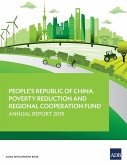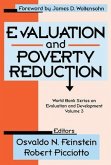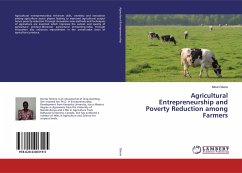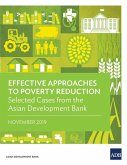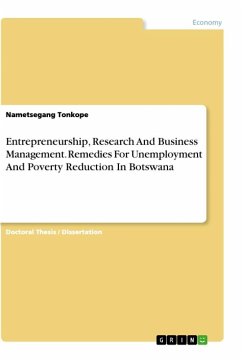The market-based approach to poverty reduction has gathered momentum. Hence, marketing practitioners and business scholars now view some of the world¿s poorest communities as profitable market. Conversely, poverty reduction should be focused on raising the productive capacity of the poor, and providing the poor access to basic public services. This paper is intended to discuss poverty reduction from the angles of: social marketing, free market economies, microfinance, employment opportunities and online shopping perspectives. The paper used a descriptive format with a well-researched literature. The objective of the study examined the extent to which influence of marketing, government agencies and private sector can reduce poverty and hunger. The conclusion is that globalization of market, government and private sectors and treating poor communities as viable consumer¿s segment will help to reduce poverty and hunger.
Hinweis: Dieser Artikel kann nur an eine deutsche Lieferadresse ausgeliefert werden.
Hinweis: Dieser Artikel kann nur an eine deutsche Lieferadresse ausgeliefert werden.



